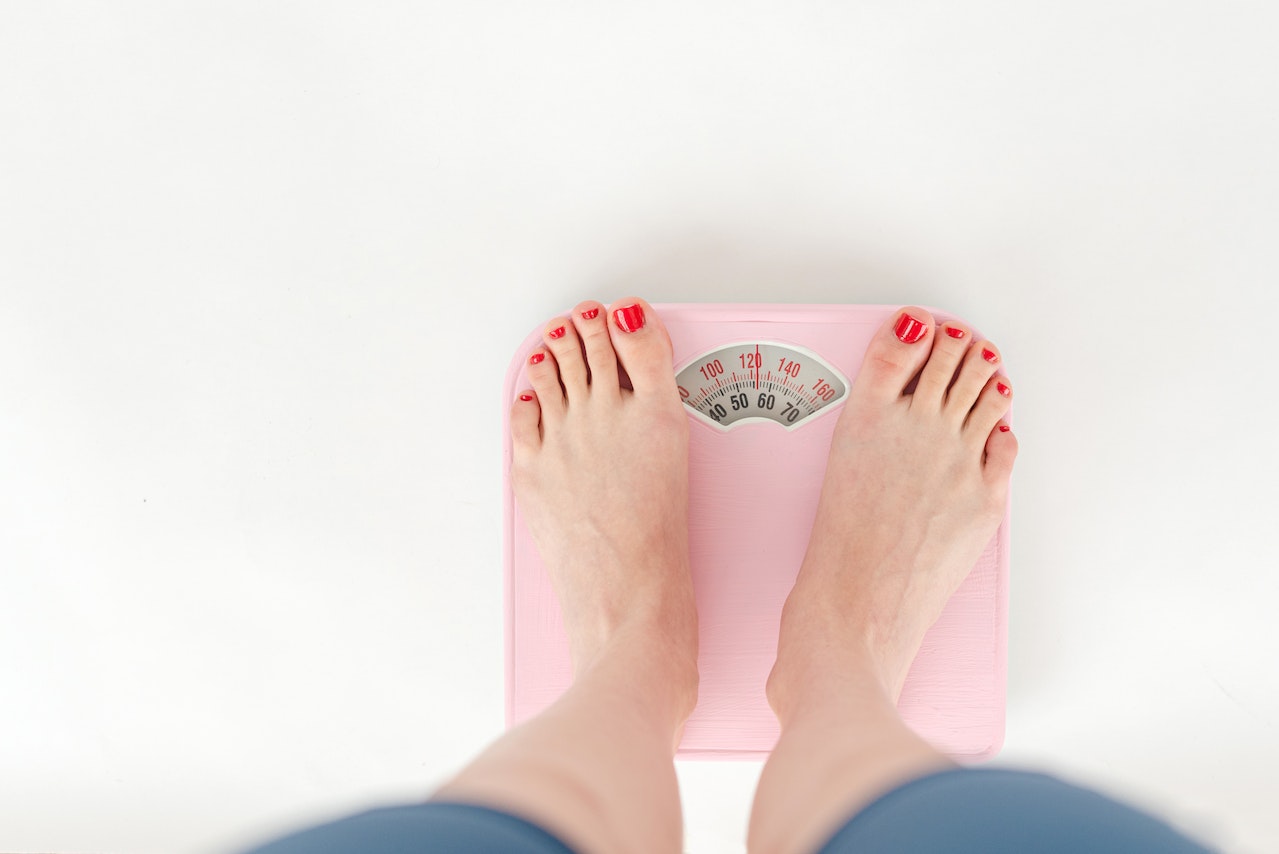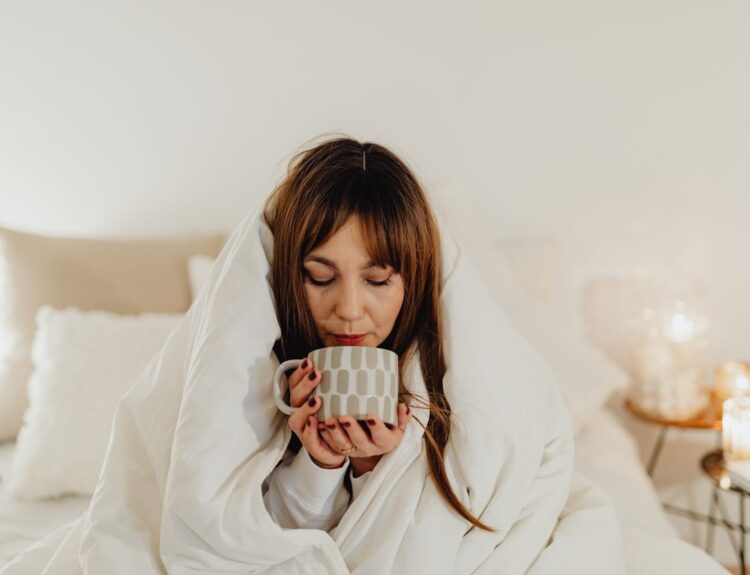It is common for many people to sleep with the TV on. Some have a TV in their bedroom and watch movies from their bed, thinking it helps them fall asleep more easily. The others regularly fall asleep in the living room on uncomfortable sofas and then drag themselves to bed exhausted in the middle of the night. We’ve researched whether sleeping with the TV on is bad and how it affects sleep quality and our overall health.
Sleeping with the TV on can negatively affect sleep quality by suppressing melatonin production and disrupting deep sleep. It can also lead to increased anxiety and stress levels.
In this article, discover:
- Is it bad to fall asleep with the TV on?
- How does sleeping with the TV on affect our health?
- 5 alternatives to sleeping with the TV on
- Sleeping with the TV on – positive sides
IS IT BAD TO FALL ASLEEP WITH THE TV ON?
Sleeping with the TV on is not recommended because it can interfere with the natural sleep-wake cycle.
Here are some of the ways sleeping with the TV on can harm your sleep:
- Light exposure – Researches show that exposure to room light, including the light from electronic devices such as TVs, can suppress melatonin secretion and disrupt sleep. Melatonin is a hormone that regulates sleep, and its reduced release due to sleeping with the TV on leads to poor sleep quality and increased fatigue during the day.
- Noise pollution – The sound from the TV can create noise pollution in the sleeping environment, and environmental noise is one of the most significant causes of sleep disturbances.
- Mental stimulation – The content of the TV show or movie you are watching can be mentally stimulating and affect your ability to relax and fall asleep. It can take time for your mind to settle down and switch off after watching a program, making it harder to fall asleep, leading to a restless night.
- Difficulty turning off – Some people cannot turn off the TV once they’ve started watching an exciting TV show, resulting in staying up late and disrupting their sleep schedule. Establishing a consistent sleep routine and avoiding activities that may interfere with sleep before bedtime, including watching TV, is crucial.
A dark, quiet, and relaxing sleep environment is essential for a good night’s sleep. To improve your sleep, try creating a sleep-conducive environment by reducing exposure to artificial light and noise and avoiding activities that may interfere with sleep before bedtime.
HOW DOES SLEEPING WITH THE TV ON AFFECT OUR HEALTH?
| Increases anxiety and stress | Stimulation from TV shows can increase anxiety and stress levels, making it harder to fall asleep and potentially leading to long-term sleep problems. |
| Causes sleep deprivation | If the TV keeps you up past bedtime or makes it difficult to fall asleep, it can lead to sleep deprivation, negatively affecting overall health and well-being. |
| Linked to obesity | Studies have shown a link between prolonged screen time before bed and obesity. This may be due to disrupted sleep patterns and an increased likelihood of snacking late at night. |
Most importantly, excessive TV watching before bedtime can make it difficult to fall asleep, reduce the time spent sleeping, and lead to a lack of sleep.
Lack of sleep can lead to severe health conditions such as Cardiovascular diseases (CVD), Mental illness (including depression and anxiety), Obesity, Diabetes mellitus, Cancers, Pulmonary diseases, Gastrointestinal diseases, Neurological diseases, Kidney diseases, and Musculoskeletal diseases.
So consider making changes to your bedtime routine. Try to avoid falling asleep with the help of the TV and choose one of the alternatives that are offered below.
5 ALTERNATIVES TO SLEEPING WITH THE TV ON
- Read a book: Reading before bed can help your mind relax and transition into sleep mode. It is also a great way to escape the day’s stress.
- Listen to soothing music: Soothing music or nature sounds can help create a relaxing sleep environment.
- Practice relaxation techniques: Deep breathing, meditation, or yoga can help calm your mind and prepare you for sleep.
- Try a Himalayan salt lamp: Himalayan lamps can help create a relaxing atmosphere and improve sleep quality. In addition, it has numerous health benefits, especially for sleep problems.
- Write a journal: Writing a journal before bed can help clear your mind, making it easier to fall asleep.
Finding what works best for you is essential, as everyone’s sleep needs differ. You can experiment with all methods and discover what helps you the most.
SLEEPING WITH TV ON – POSITIVE SIDES
While sleeping with the TV on is not recommended due to its potential adverse effects on sleep quality and overall health, some people may find it helpful in certain situations.
For some people, the background noise from the TV can be calming and help them fall asleep. This is particularly true for those with trouble sleeping in a quiet environment.
It’s also not bad for someone who needs some sound to distract them from their thoughts and worries when trying to fall asleep. If you are one of those people, turn down the TV volume so that you can hear the muffled sounds in the background, but not loud enough to, e.g., you can listen to what is being talked about on TV. It would be best not to look at the screen but to close your eyes and let the muffled sound of the TV lull you to sleep.
In addition, watching a calming or relaxing show or movie before bed can help some people relax and unwind, making it easier to fall asleep. After a busy day, it can be a great stress reliever, after which you will sleep like a baby.
It is important to note that while these potential positive sides may be helpful for some individuals, they do not outweigh the adverse effects of sleeping with the TV on.
_____
Sleeping with the TV on is not recommended due to its potential adverse effects on sleep quality and overall health. The light and content of the TV can disrupt your sleep. Although some people claim that the background noise from the TV can help you fall asleep, it is better to try the listed alternative methods because, unlike the TV, they cannot negatively affect your health.










